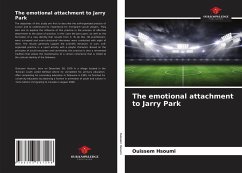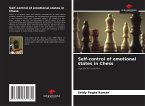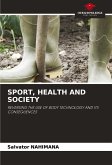The objectives of this study are first to describe the self-organized practice of soccer and to understand its importance for immigrant soccer players. They also aim to explore the influence of this practice in the process of affective attachment to the place of practice, in this case the Jarry pare, as well as the formation of a new identity that results from it. To do this, 90 practitioners were surveyed and semi-structured interviews were conducted with eight of them. The results generally support the scientific literature. In sum, self-organized practice is a sport activity with a playful character. Based on the principles of social encounter and conviviality, this practice is also a reinvented tradition that allows the maintenance of a certain coherence that is linked to the cultural identity of the followers.
Bitte wählen Sie Ihr Anliegen aus.
Rechnungen
Retourenschein anfordern
Bestellstatus
Storno








